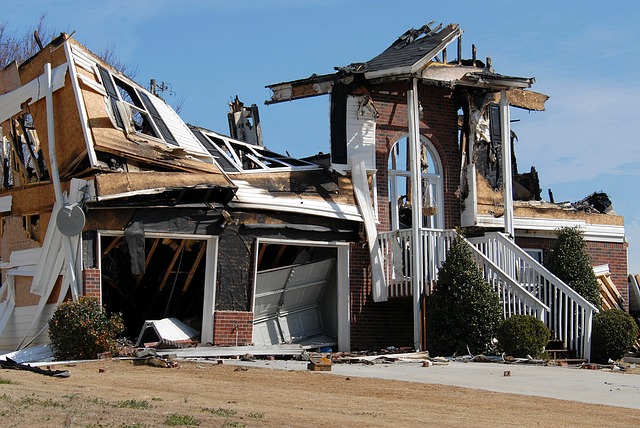Commercial insurance is an essential tool for businesses aiming to thrive, offering comprehensive risk management against threats like property damage, liability claims, and income losses. This includes Workers' Compensation (WC) insurance, a legal obligation and key component of commercial policies, which provides immediate financial support for injured or ill employees, enhancing trust, mitigating risks, and ensuring compliance with legal requirements. Every business operating in commercial settings must carry WC coverage, protecting both employees and employers from job-related risks. Tailoring WC policies to specific industry needs and workforce demands ensures comprehensive liability protection while maintaining a safe work environment. Effective claims management and adherence to local regulations are crucial for businesses of all sizes to avoid severe financial consequences.
In today’s competitive business landscape, understanding commercial insurance is paramount for any enterprise. This article delves into the critical aspect of workers’ compensation coverage, a game-changer in mitigating risks and ensuring employee well-being. We explore essential topics such as policy types, selection strategies, claims management, and common pitfalls to avoid. From small startups to large corporations, discover how commercial insurance can safeguard your business and foster a positive work environment.
Understanding Commercial Insurance: An Overview

Commercial insurance is a critical aspect of running a successful business, offering protection against various risks and uncertainties that come with operating in a competitive market. It’s a comprehensive risk management tool designed to safeguard commercial enterprises from financial loss, ensuring their stability and continuity. This type of insurance covers a wide array of potential liabilities, including property damage, liability claims, and income losses due to unforeseen events.
At its core, commercial insurance provides businesses with peace of mind by mitigating the impact of unexpected occurrences. Whether it’s protecting valuable assets, managing legal responsibilities, or supporting operations during crises, these policies are tailored to meet the unique needs of different industries. By understanding and utilizing commercial insurance effectively, business owners can focus on growth and success while ensuring they’re prepared for any challenges that may arise.
The Importance of Workers' Compensation Coverage

For commercial businesses, ensuring the well-being of employees is not just a moral responsibility but also a legal requirement. Workers’ Compensation insurance serves as a vital component of a comprehensive Commercial Insurance policy, providing financial protection and support to workers who suffer injuries or illnesses on the job. This coverage is essential for several reasons. Firstly, it offers immediate assistance to affected employees, helping them cover medical expenses and lost wages during their recovery. Secondly, it demonstrates a business’s commitment to its workforce, fostering trust and loyalty.
Moreover, Workers’ Compensation plays a significant role in risk management by shielding businesses from potential legal repercussions and financial instability. It helps commercial enterprises avoid costly lawsuits and lengthy court battles, ensuring operations remain uninterrupted. By prioritizing this coverage, businesses can create a safer work environment, mitigate risks, and maintain a positive reputation among employees and stakeholders alike.
Who Needs Commercial Workers' Comp?

Every business that employs workers in commercial settings requires Commercial Insurance, including workers’ compensation coverage. This includes a wide range of establishments from retail stores and restaurants to construction sites and office buildings. The need for workers’ comp arises from the inherent risks associated with various job roles. Whether it’s a cashier at a grocery store, a construction laborer, or an administrative assistant, employees can face accidents, injuries, or illnesses related to their work.
Workers’ compensation insurance is designed to protect both employees and employers by providing financial support to workers who suffer on-the-job injuries or contract work-related illnesses. It ensures that employees receive medical care, rehabilitative services, and income replacement during the recovery period. Simultaneously, it shields employers from substantial legal liabilities and potential financial burdens resulting from workplace accidents.
Types of Workers' Compensation Policies

Commercial businesses operating in today’s dynamic marketplace face unique challenges when it comes to protecting their most valuable asset—their employees. One of the critical components of risk management is implementing a robust Workers’ Compensation policy, tailored to the specific needs of the business. These policies are designed to provide financial protection and support to workers who sustain injuries or contract illnesses related to their job.
There are several types of Workers’ Compensation Policies available for commercial insurance purposes. Each offers distinct benefits and coverage options, catering to different business sizes and industries. From standard policies that cover common workplace hazards to specialized plans for high-risk occupations, businesses can choose the most suitable option. Customizable features ensure that each policy aligns with the unique demands of the workforce, offering peace of mind and comprehensive protection against potential liabilities.
How to Choose the Right Coverage for Your Business

When selecting workers’ compensation coverage for your commercial business, it’s crucial to understand your specific needs and risks. Different industries have varying requirements, so a tailored approach is essential. Start by evaluating the nature of your operations: are there high-risk tasks or environments? Understanding the potential hazards is key to determining the level of coverage needed. For example, construction sites require comprehensive coverage due to the inherent risks involved.
Next, consider the size and workforce of your business. Smaller enterprises might opt for standard packages, while larger organizations may need customized solutions. Consult with insurance professionals who can guide you through the options, ensuring you select the right Commercial Insurance policies to protect your workers and stay compliant with legal obligations.
Claims Process: What Employees and Employers Need to Know

The claims process for workers’ compensation is a crucial aspect of ensuring fair and timely support for injured or ill employees in commercial businesses. When an employee experiences a work-related injury or illness, they should report it to their employer as soon as possible. The employer is responsible for documenting the incident, providing medical care, and filing a claim with their commercial insurance provider on behalf of the employee.
Employees play a vital role in this process by actively participating in reporting accidents, seeking prompt medical attention, and cooperating with employers during investigations. They should keep records of all communications and documents related to the injury or illness. Effective communication between employees and employers is essential to navigate the claims process smoothly, ensuring that everyone involved understands their rights and responsibilities under workers’ compensation laws and their commercial insurance policy.
Common Mistakes Businesses Make Regarding Workers' Comp

Many businesses, especially small and medium-sized enterprises (SMEs), often fall into common traps when it comes to Workers’ Compensation. One major mistake is underestimating the importance of this coverage. Commercial Insurance for workers’ comp isn’t just an added expense; it’s a legal requirement in many jurisdictions and acts as a safety net for both employees and employers. Neglecting to have adequate coverage can lead to severe financial consequences if an employee gets injured on the job.
Another frequent error is not understanding that Workers’ Compensation insurance covers more than just medical expenses. It includes provisions for lost wages, rehabilitation services, and even permanent disability or death benefits. Businesses should also be vigilant about misclassifying employees as independent contractors, which can void workers’ comp coverage. Staying informed and compliant with local regulations is crucial to avoid these pitfalls and ensure a protected work environment.
Benefits and Impact on Small vs Large Enterprises

Workers’ Compensation plays a pivotal role in safeguarding employees and mitigating financial risks for businesses, with significant implications varying between small and large enterprises. For smaller firms, often characterized by lean operations and tighter budgets, it serves as a crucial safety net. This insurance provides essential coverage for medical expenses, lost wages, and rehabilitation services when workers sustain injuries or contract illnesses related to their jobs. The impact is profound, ensuring employees receive the support they need while minimizing the financial strain on the business during an already challenging period.
In contrast, large enterprises, with their extensive resources and complex operations, may face different challenges. While Workers’ Compensation remains vital for them, its impact can be more manageable due to substantial financial reserves and established HR practices. However, these companies must still adhere to legal requirements and maintain robust insurance policies as a part of their comprehensive risk management strategies. Commercial Insurance, encompassing Workers’ Comp and other coverage, becomes a strategic tool for large businesses to navigate potential liabilities and ensure business continuity.
